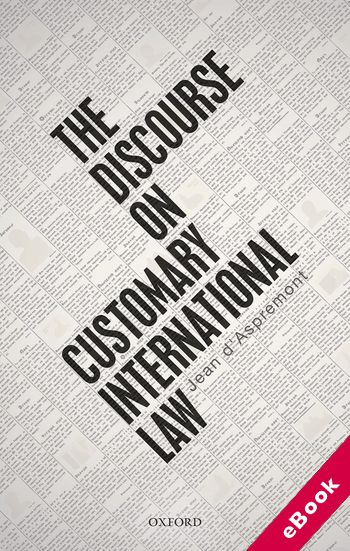
The device(s) you use to access the eBook content must be authorized with an Adobe ID before you download the product otherwise it will fail to register correctly.
For further information see https://www.wildy.com/ebook-formats
Once the order is confirmed an automated e-mail will be sent to you to allow you to download the eBook.
All eBooks are supplied firm sale and cannot be returned. If you believe there is a fault with your eBook then contact us on ebooks@wildy.com and we will help in resolving the issue. This does not affect your statutory rights.
Along with treaties, custom is one of the sources of international law. It is known to consist of two elements: state practice and opinio juris. While many studies have looked at traditional questions of how to identify customary law, this book takes a new and original approach. It looks instead at the structure of thought that lies beneath the arguments about customary international law. By examining these structures, the book uncovers surprising conclusions, and demonstrates what the author describes as the 'discursive splendour' of customary international law. The book guides the reader through an analysis of eight distinct performances at work in the discourse on customary international law. One of its key claims is that customary international law is not the surviving trace of an ancient law-making mechanism that used to be found in traditional societies. Indeed, as is shown throughout, customary international law is anything but ancient, and there is hardly any doctrine of international law that contains so many of the features of modern thinking. It is also argued that, contrary to mainstream opinion, customary international law is in fact shaped by texts, and originates from a textual environment. This book provides an engaging account of customary international law, whilst challenging readers to rethink their understanding of this fundamental part of the discipline.